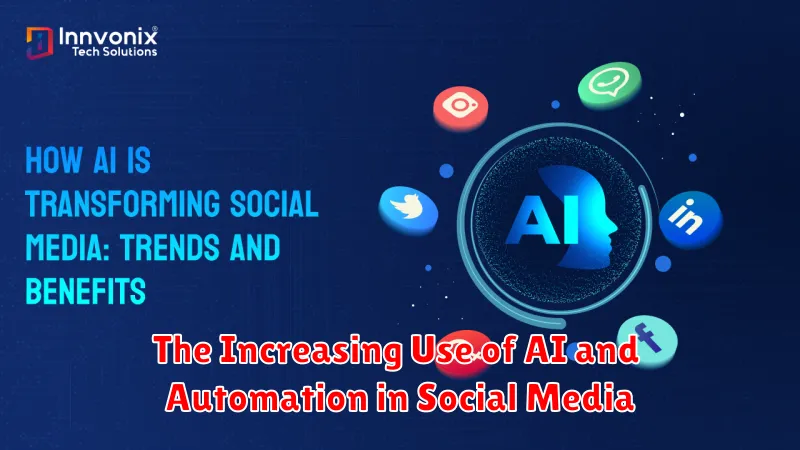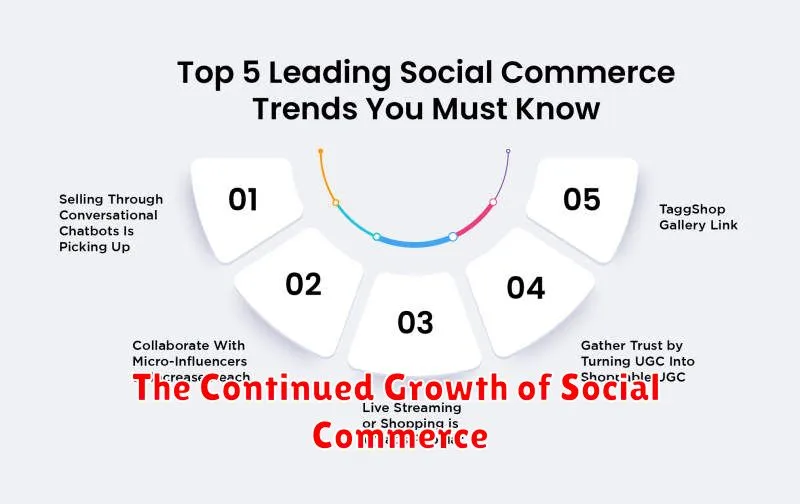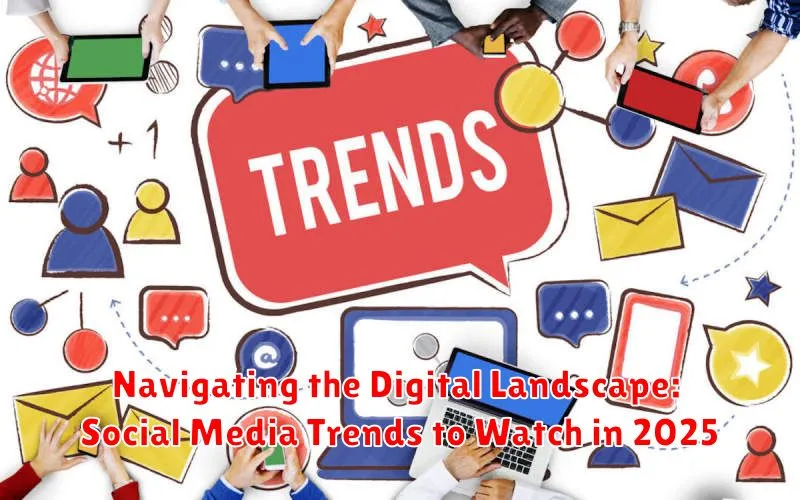The digital landscape is constantly evolving, making it crucial for businesses and individuals to stay ahead of the curve. In 2025, social media will continue to be a dominant force in shaping communication, marketing, and even societal trends. Understanding the key social media trends is essential for effective engagement and achieving desired outcomes in this dynamic environment. This article explores the emerging social media trends to watch in 2025, providing valuable insights to navigate the ever-changing digital landscape and harness the power of social media for success. From the rise of short-form video to the increasing importance of authenticity and community building, staying informed is paramount.
Navigating the digital landscape requires a proactive approach, and this article aims to equip you with the knowledge necessary to leverage the latest social media trends. We will delve into the specifics of each trend, offering practical guidance and actionable strategies. Whether you’re a seasoned marketer, a business owner, or simply an avid social media user, understanding these evolving dynamics is crucial for remaining relevant and maximizing your impact in the digital landscape of 2025. Prepare to explore the future of social media and unlock its potential.
The Rise of Short-Form Video Content
Short-form video content continues its reign as a dominant force in the social media landscape. Platforms like TikTok, Instagram Reels, and YouTube Shorts have solidified the snackable content trend, capturing user attention with their easily digestible format. This trend shows no signs of slowing down, with predictions indicating even greater growth in 2025.
The engagement levels with short-form videos are significantly high, driven by algorithms that prioritize content based on user interaction. This creates a feedback loop, pushing more short-form video content to wider audiences. Businesses and creators are leveraging this format for everything from product demos and behind-the-scenes glimpses to educational content and entertainment.
The dynamic nature of short-form video allows for quick cuts, engaging music, and creative visual effects, holding the viewer’s attention in a way that longer-form content sometimes struggles to achieve. This presents a significant opportunity for businesses to connect with their target audience in a fast-paced, visually compelling manner.
The Growing Importance of Authenticity and Transparency
In the evolving digital landscape, authenticity and transparency are becoming increasingly crucial for brands and individuals seeking to connect with their audiences. Consumers are more discerning than ever, prioritizing genuine interactions and valuing brands that align with their values.
Transparency is paramount. Consumers expect brands to be open about their practices, from supply chain details to data handling processes. This builds trust and strengthens the brand-consumer relationship.
Authenticity fosters deeper connections. Presenting a genuine image, free of excessive filtering and curated perfection, resonates with audiences seeking real connections. Sharing genuine stories and engaging in honest conversations strengthens brand loyalty.
This trend towards authenticity and transparency reflects a broader societal shift towards valuing genuine human connection and ethical practices in the digital space. Brands that embrace this trend will be better positioned to build trust and foster lasting relationships with their audiences.
The Metaverse and Its Impact on Social Media
The metaverse represents a significant paradigm shift in how we interact with the digital world. It’s a persistent, shared, 3D virtual environment, blurring the lines between the physical and digital realms. This has profound implications for social media, transforming how we connect, communicate, and consume content.
Social interactions within the metaverse are expected to become more immersive and experiential. Imagine attending virtual concerts with friends, collaborating on projects in virtual workspaces, or even shopping for digital clothing for your avatar. These experiences create new opportunities for brands and creators to engage with their audiences in novel ways.
The metaverse also presents challenges. Issues surrounding data privacy, security, and accessibility need careful consideration. Establishing clear guidelines and regulations will be crucial for ensuring a safe and inclusive metaverse for all.
The Evolution of Influencer Marketing
Influencer marketing continues to be a powerful force in the digital landscape. However, in 2025, we anticipate a shift towards more niche micro-influencers. Consumers are craving authenticity and connection, leading to increased trust in individuals with smaller, highly engaged audiences.
Transparency will also be paramount. Sponsored content must be clearly disclosed, and influencers will need to prioritize genuine engagement over follower count. Brands will increasingly seek long-term partnerships with influencers who align with their values and can demonstrably impact their target audience.
Data-driven influencer marketing campaigns will become the norm. Brands will utilize sophisticated analytics tools to track campaign performance and measure ROI more effectively. This data-driven approach will enable more precise targeting and personalized influencer selections.
The Increasing Use of AI and Automation in Social Media

Artificial intelligence (AI) and automation are poised to play an increasingly significant role in shaping the social media landscape in 2025. These technologies are streamlining various aspects of social media management, from content creation and scheduling to audience engagement and analytics.
AI-powered tools can analyze vast amounts of data to identify trending topics, personalize content recommendations, and even generate creative text formats. This allows brands and individuals to optimize their social media strategies for maximum impact. Moreover, AI algorithms are becoming more sophisticated in detecting and mitigating harmful content, such as hate speech and misinformation, creating a safer online environment.
Automation tools are simplifying repetitive tasks, such as scheduling posts and responding to common queries, freeing up social media managers to focus on more strategic initiatives. This increased efficiency is crucial for managing the complexities of a multi-platform social media presence.
The Importance of Data Privacy and Security
In the evolving digital landscape of 2025, data privacy and security are paramount. Users are increasingly aware of the value of their personal information and demand greater transparency and control over how it is collected, used, and protected. Social media platforms will need to prioritize robust data protection measures to maintain user trust and comply with evolving regulations.
Strengthening security protocols, implementing end-to-end encryption, and providing users with granular privacy controls will be essential. Furthermore, platforms must be transparent about their data collection practices and ensure users have easy access to information regarding how their data is being utilized. Proactive measures to prevent data breaches and unauthorized access are crucial for maintaining user confidence and ensuring the long-term viability of social media platforms.
Data minimization, the practice of collecting only the necessary data, will become increasingly important. Platforms will need to justify the data they collect and demonstrate a clear purpose for its use. User consent will remain a cornerstone of data privacy, with users empowered to opt-in or opt-out of data collection practices. The onus will be on social media platforms to demonstrate a genuine commitment to safeguarding user data and fostering a safe and secure online environment.
The Shift Towards Community-Based Platforms
In 2025, expect a notable shift towards community-based platforms. Users are increasingly seeking spaces online where they can connect with like-minded individuals, fostering a sense of belonging and shared identity. This trend represents a move away from broader, more generalized social networks and toward niche communities focused on specific interests, hobbies, or professions.
Smaller, dedicated platforms are gaining traction, providing more intimate and engaging experiences. These platforms often prioritize deeper interactions and meaningful connections over superficial engagement metrics. This fosters a sense of trust and allows for more genuine conversations, which can be incredibly valuable for users seeking authentic online experiences.
Platforms are adapting by incorporating features that facilitate community building, such as dedicated groups, forums, and interactive events. This shift underscores the growing importance of fostering online communities and the value users place on belonging and shared experiences within the digital landscape.
The Continued Growth of Social Commerce

Social commerce, the practice of selling products or services directly through social media platforms, is poised for continued expansion in 2025. Streamlined purchasing processes, integrated checkout options, and enhanced user experiences are driving this growth. Consumers are increasingly comfortable making purchases within the social media environments they already frequent.
Live shopping experiences, where brands showcase and sell products in real-time video streams, are gaining traction and are expected to become even more prominent. This interactive format allows for direct engagement with customers, fostering trust and encouraging immediate purchases. Furthermore, advancements in augmented reality (AR) and virtual reality (VR) technologies are enabling virtual try-on experiences and immersive product demonstrations, further blurring the lines between online and offline shopping.
The rise of creator economy also plays a vital role. Influencers and content creators are increasingly becoming trusted sources for product recommendations and are effectively driving sales through affiliate marketing and sponsored content.

